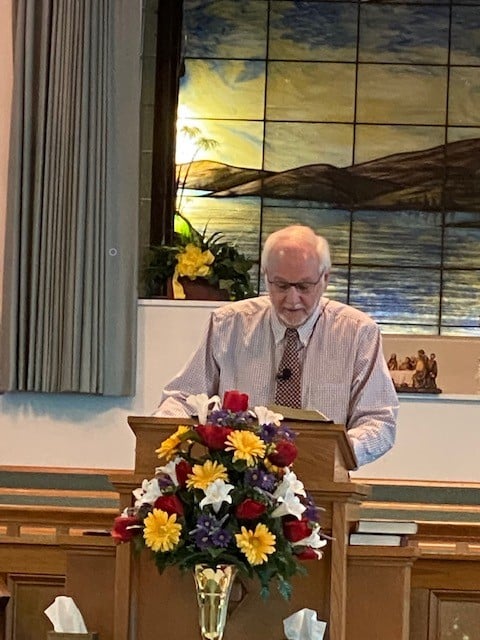I was recently asked a question that I’m sure many pastors have been asked at one time or another, which is this, “Will we recognize our loved ones when we get to heaven?” Well, if you go by all the gospel songs I’ve sung for years, the answer to that question is almost certainly, “Yes”; as they all seem to picture our final resting place as a great reunion with all our loved ones in a land of eternal peace and joy. And while I still enjoy singing those old songs, to find out if they are accurate in their depiction of heaven, there is only one source that truly provides an answer to this question, the inspired and inerrant word of God. So I decided to take a little time and do just that, and after doing so, I must confess that Scripture does not give us as definitive an answer on the subject as we would like.
Now, when I was first asked the question, one of the things that first came to my mind was the time when Jesus was on the Mount of Transfiguration as it is recorded in all three synoptic gospels (see Matthew 17:1-8, Mark 9:2-8, Luke 9:28-36). There it says that Jesus was transformed before Peter, James and John so that His appearance was altered and His clothes became exceedingly white, and that in the midst of this transformation, suddenly Moses and Elijah appeared and began speaking with Jesus. Now from that information, it appears that these two Old Testament saints were certainly recognizable. But this leads to another question. How did Peter, James and John know this was Moses and Elijah? After all, as far as we know, they had no pictures of these two Old Testament saints in that day. So it is possible that they figured it out by something said in the conversation or maybe by something in the manner in which they appeared. Or Jesus may have even provided this information to them after the fact, we just don’t know for sure.
Then there is the famous story Jesus told in Luke 16:19-31 about Lazarus and the rich man. In that story it says that in this life the rich man had everything imaginable, obviously including great wealth, and that daily he enjoyed his earthly life to the fullest. Lazarus, on the other hand, was a poor beggar who longed to just be fed with crumbs from the rich man’s table, that his life was miserable and the dogs came to lick his sores. In time, it says, they both died and that the rich man lifted up his eyes in torment and saw Lazarus standing beside Abraham and that the rich man recognized him (see verse 23). So this would certainly seem to indicate that Lazarus looked like himself. Now while this may help, it doesn’t provide the final answer because the state Lazarus appears in this story is what we would call the intermediate state, the state in which we exist after we die and remain in until the resurrection when we all receive our glorified bodies (see I Corinthians 15:42-57, I Thessalonians 4:13-18).
Now while neither one of these two incidents are definitive, based on this little bit of information, it does appear that we will most likely be able to recognize our loved ones in heaven. But this in itself raises another question we might want to consider. Will we recognize that we have loved ones who are not there? And my answer to that, I must admit, is conjecture. In describing our eternal home in Revelation 21:3-4, John wrote, “And I heard a great voice out of heaven saying, ‘Behold, the tabernacle of God is with men, and He will dwell with them, and they shall be His people, and God Himself shall be with them, and be their God. And God shall wipe away all tears from their eyes; and there shall be no more death, neither sorrow, nor crying, neither shall there be any more pain; for the former things are passed away.” The key to answering this second question appears to be how we understand the phrase, “God shall wipe away all tears from our eyes.” If it is meant to be understood literally, then I would say yes, we may very well know that there are loved ones missing.
Now in truth, the whole tenor of these 2 verses seem to speak of God removing everything that could cause tears, that there will be no sorrow there, nor crying or pain whatsoever. And if that is the case, it may be that God somehow graciously removes from our memories anything that could introduce a state of sadness, which would certainly include the memories of those who are missing. And just like with many things, God has not revealed everything to us when it comes to our eternal home, so this too is conjecture on my part. But when it comes to our future state, we do know that He is providing a glorious existence for His own with Him, forevermore. And when the time comes, I know that it will be like everything else He does, perfect!
For God’s glory and His alone,
Pastor Terry.

